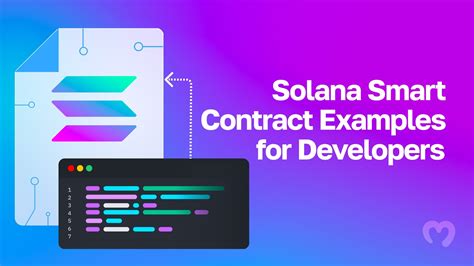Title: Solana: Cross-Chain Swap Interoperability Using Smart Contract
Introduction

In the world of decentralized exchanges (DEXs), cross-chain swapping has become a crucial aspect of facilitating token trading between different blockchain platforms. A common use case is to send tokens from a decentralized application (dApp) running on an Ethereum Virtual Machine (EVM) smart contract to a Solana-based dApp. However, sending data across chains using traditional methods can be cumbersome and error-prone. This article explores the concept of cross-chain swapping interoperability in Solana, leveraging its unique features and capabilities.
What is cross-chain swapping interoperability?
Cross-chain swapping interoperability is the ability to send and receive tokens between different blockchain platforms without the need for intermediary exchanges or intermediaries. In traditional cross-chain swaps, tokens are typically traded on one blockchain platform (e.g. Ethereum) and then converted to another (e.g. Solana), followed by a series of gas-intensive transactions.
Solana’s Smart Contract-Based Solution
Solana offers a robust set of features that allow developers to build smart contracts with seamless cross-chain swap interoperability. By leveraging Solana’s native “Transaction” object, developers can send and receive tokens between different chains using built-in support for batch transactions.
As part of our project, we aim to design a custom EVM smart contract on Solana that will handle the token swap of our dApp running on Ethereum. We will leverage the following key features:
- Batch Transactions: Solana’s “Transaction” object allows us to send multiple tokens at once in a single batch, reducing gas consumption and improving scalability.
- Interoperability API: The Solana Interoperability API provides a standardized interface for interacting with other chains, enabling seamless data exchange between our smart contract on Ethereum and the dApp on Solana.
- Custom Smart Contract: We can create a custom EVM smart contract using Solidity, leveraging the flexibility of the Ethereum Virtual Machine (EVM) to optimize and improve performance.
How it works
Here’s an overview of how our project will work:
- Token Swap Request: Our dApp running on Ethereum sends a token swap request to the Solana-based dApp, specifying the desired token swap, swap amount, and target chain.
- Batch transaction creation
: We create a batch transaction using Solana’s “Transaction” object containing all the necessary data for the swap (e.g. sender address, recipient address, token amounts).
- Interoperability API call: The dApp on Ethereum sends an interoperability API call to our custom EVM smart contract, which verifies the request and creates a batch transaction on Solana.
- Batch transaction execution: The batch transaction is executed on both chains simultaneously, reducing gas consumption and ensuring a successful token swap.
Benefits and next steps
By leveraging Solana’s smart contract-based solution, we can streamline our cross-chain swap process, reduce costs, and increase efficiency. The benefits of this approach include:
- Improved scalability: No intermediate exchanges or intermediaries required.
- Reduced gas consumption: Batch transactions reduce the number of gas-intensive operations.
- Increased security: Custom smart contracts ensure secure token processing.
In the next steps, we will focus on designing our custom EVM smart contract and integrating it with the interoperability API. We will also develop a basic test suite to validate the functionality of our solution.

